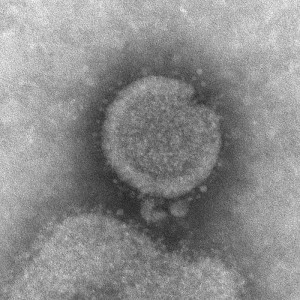The Hong Kong Centre for Health Protection (CHP) of the Department of Health report investigating the first imported human case of avian influenza A(H7N9) in Hong Kong this winter.
The patient, a 75 -year-old male with underlying illnesses, traveled to Changping, Dongguan alone on November 28 and attended a hospital there for chest discomfort on December 8. He returned to Hong Kong via Lo Wu on December 9 and was directly admitted to North District Hospital by ambulance for cough with sputum, shortness of breath, runny nose and chest discomfort. His nasopharyngeal swab tested positive for enterovirus/rhinovirus and negative for influenza virus upon testing by the CHP’s Public Health Laboratory Services Branch (PHLSB).

Image/CDC
The patient subsequently developed fever on December 17 and the clinical diagnosis was pneumonia. His nasopharyngeal aspirate collected today was confirmed to be positive for influenza A(H7N9) virus by the PHLSB tonight. He is now in serious condition and is under isolation and further management.
The patient denied recent exposure to poultry or wet market.
His home contacts have remained asymptomatic so far and have been put under medical surveillance.
“The case will be notified to the World Health Organization and the national, Guangdong and Macau health authorities. We are communicating with the Mainland authority to follow up the patient’s exposure and movements in the Mainland. Based on information available thus far, it is classified as an imported case. Epidemiological investigations are ongoing,” a spokesman for the CHP said.
“Recently, Guangdong reported the first human case of avian influenza A(H7N9) in this winter. Human H7N9 cases have also been detected in Zhejiang, Jiangsu and Fujian while human H5N6 cases in Hunan and Guangxi since November. Locally, four faecal dropping samples of birds collected from Mai Po Nature Reserve in late November were detected with H5N6 virus. Our risk assessment shows that the activity of avian influenza viruses is expected to increase in winter based on their seasonal pattern,” the spokesman said.
“The public should avoid touching birds, poultry or their droppings and visiting poultry markets or farms during travel, particularly in the upcoming Christmas and New Year holidays. If feeling unwell such as fever or cough, wear a mask and seek medical advice at once. Travellers returning from affected areas should consult doctors promptly if symptoms develop and let them know your travel history,” the spokesman added.
This is the 17th imported human case of avian influenza A(H7N9) confirmed in Hong Kong. From 2013 to date, 783 human cases of avian influenza A(H7N9) have been reported by the Mainland health authorities.
Related:


2 thoughts on “Hong Kong: Imported human case of H7N9 avian influenza reported”